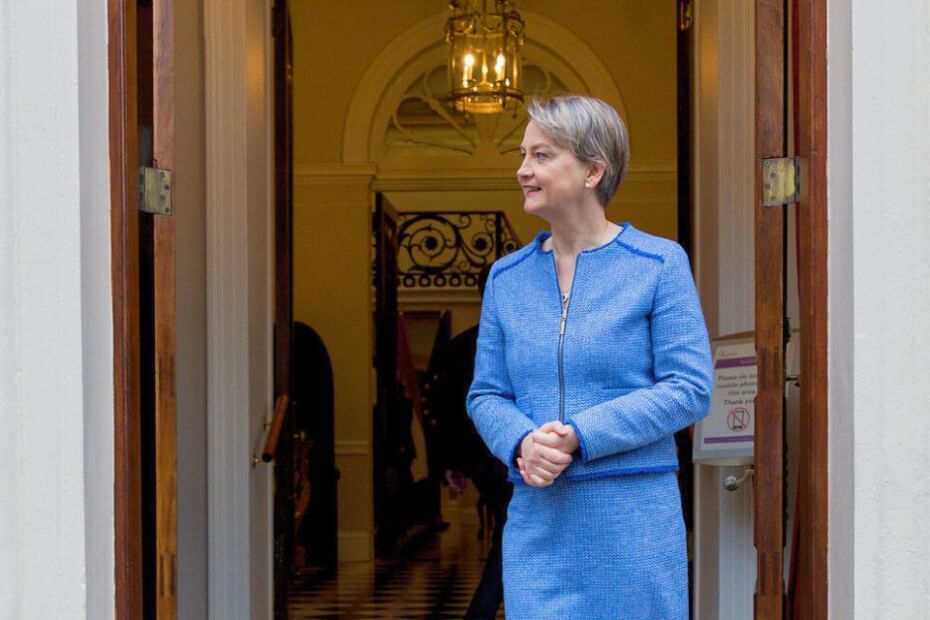
United Kingdom (UK) Home Secretary Yvette Cooper recently presented the government’s plans for immigration reform.
Speaking to the Home Affairs Committee, she explained the plans to reduce the number of migrants, fill job shortages with domestic workers, and create a fairer, more sustainable system.
“We must have a proper, medium-term strategy for sectors,” Cooper said, stressing the need for solutions that address long-term workforce needs.
Her proposals focus on supporting UK workers while ensuring businesses can hire skilled labor when necessary.
“Our plan is to publish a white paper [this] year that will set out how we bring migration down,” she added.
The White Paper will provide more details about how the government wants the new immigration system to work.
Coming Soon: A New White Paper
At the center of the government’s immigration reform plan is a new White Paper, which outlines steps to lower net migration, to be published soon.
This includes improving training opportunities for local British workers and adjusting visa rules to reflect the country’s job market needs.
Cooper highlighted that specific industries, such as healthcare, information technology (IT), and engineering, have relied heavily on overseas workers.
The government aims to investigate why this has been the case in detail, aiming to reduce this dependence.
It aims to encourage businesses to prioritize hiring and training local British workers or those already in the UK.
However, industries will still be able to recruit from overseas if there are no qualified candidates in the country.
“I think we also have to have stronger visa controls in place,” the Home Secretary revealed.
Cooper added that alongside visa controls, the government wants stronger links where skills training or other workforce policies are needed.
The Migration Advisory Committee (MAC), which advises the government on immigration, will play a key role in deciding where visa adjustments are needed.
It has been tasked with reviewing the IT and engineering sectors to understand their reliance on overseas workers and find solutions.
Criticism of past immigration policies

The Home Secretary also pointed out several issues with previous immigration reform rules.
She argued that some rules made it too easy for businesses to hire workers from other countries instead of training people in the UK.
For example, a previous policy allowed employers to hire foreign workers at a discount, which Cooper said “encouraged undercutting.”
She explained that this made companies less likely to invest in their local workforce.
Under the upcoming proposals, businesses will be encouraged to provide more training opportunities for UK workers.
This will be particularly crucial for industries with high demand for skilled labor and have struggled with staffing shortages.
Challenges in specific industries
Some industries, such as healthcare, social care, IT, and engineering, face unique challenges that require targeted solutions.
For instance, social care has many unfilled jobs. At the same time, IT and engineering often lack enough qualified workers in the UK.
To solve these problems, the government plans to partner with skills organizations to improve training opportunities.
This will allow more UK workers to gain the qualifications they need to take on these roles.
Cooper emphasized that hiring workers from other countries should only be a backup plan when no qualified local workers are available.
The Quad Arrangement: A Team Approach
To make these changes successful, the government plans to introduce a new framework called the “quad arrangement.”
This approach brings together four key groups:
- Employers: Businesses will be asked to focus on hiring and training workers in the UK before looking abroad.
- The Department for Work and Pensions (DWP): This department will help get more people into jobs by reducing unemployment and supporting those out of work.
- Skills Organizations: Groups like Skills England and others in Scotland, Wales, and Northern Ireland will create new training programs for workers.
- The Migration Advisory Committee (MAC): The Committee will provide expert advice on visa rules and workforce needs.
By coordinating these initiatives, the government aims to gradually decrease reliance on foreign workers.
At the same time, it also aims to assist businesses in finding the skilled workers they need.
Stronger borders and tackling illegal immigration

Another key part of the planned immigration reform is improving border security, with the new Border Security Command (BSC) taking the lead.
The BSC’s main tasks include preventing illegal migration and breaking up people-smuggling networks that facilitate dangerous Channel crossings.
It will work with other nations to stop smugglers and reduce dangerous illegal crossings into the UK.
“There is a growing interest now across a lot of European countries in going after those criminal smuggler gangs,” Cooper explained.
The Home Secretary made it clear that keeping the UK’s borders secure is a top priority.
Copper underlined the government’s commitment to providing safe and legal routes for people fleeing persecution.
However, she stressed that such routes are already in place and should not wholly replace going after the criminal gangs.
Reactions to planned immigration reforms
The government’s proposals have sparked mixed reactions.
Some business groups have raised concerns that reducing immigration too quickly could create more job shortages.
On the other hand, supporters of stricter immigration rules welcomed the government’s immigration reform plan.
Many believe the reforms will lead to a more balanced system that benefits the country as a whole.
The government has promised to introduce the changes gradually, giving businesses time to adjust.
Cooper’s testimony highlights the need for an immigration system that supports the UK economy while reducing strain on public services.
“These reforms are about ensuring our immigration system works for everyone,” Cooper emphasized.
The White Paper, expected to be published soon, will provide more details on how these planned immigration reforms will work.

